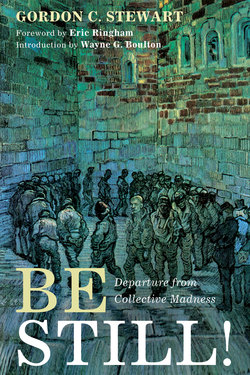Читать книгу Be Still! - Gordon C. Stewart - Страница 13
Memorial Day and the Soldier’s Helmet
ОглавлениеAs wounded men may limp through life,so our war minds may not regain the balance of their thoughts for decades.
—Frank Moore Colby9
Memorial Day once honored the fallen soldiers of the Civil War, both Union and Confederate soldiers. They called it Decoration Day, and they laid wreathes and flowers on the graves of the dead soldiers.
When I learned this in elementary school, it struck me as more than a little strange. My father had served as a Chaplain on Saipan. My father was a good guy. The people he went to war against—the Germans, the Japanese, and the Italians—were not. How strange to honor soldiers who fought against each other, heroes all, killing each other, especially when one side was good and the other was evil. It was more than a little confusing.
Decades later, I’m a pastor sitting in my office. It’s Monday morning. A phone call comes from a seventy-something-year-old former Marine. He’s a big man, what tough guys call “a man’s man,” a World War II decorated veteran, six-feet-two, two-hundred-fifty pounds of muscle, part of the invasion of Saipan in the South Pacific when he was seventeen.
“My wife’s out of town. Can you come over tonight for a drink?”
I’ve never been to their home. I’m guessing he wants to talk about his marriage.
That evening, he welcomes me and takes my winter coat. He pours us each a Scotch. We sit down in the living room.
“You know, I’m not one of these peace guys. I stopped going to church for a couple of years, but something made me come back. I started to listen and I kept coming, and all this peace stuff and Jesus stuff started to get to me. It’s been a long time now. That’s why I called you. I need to confess before it’s too late.
“I hate the Japs! I know I’m not supposed to call ’em ‘Japs’, but I hate them! I do. But I can’t hate them anymore.”
He gets up and walks over to the mantel above the huge stone fireplace.
“My wife has no idea what’s in this box. I’ve never told her. I can’t tell her. I don’t want it anymore. I want this out of my house. I’m asking you to take it. I don’t care what you do with it. I can’t live with it anymore.”
He takes the box down from the mantel, places it on the ottoman in front of me, and opens the locked box with a key. He is shaking now and crying.
“This poor bastard! I killed this [expletive] with my bare hands!”
His whole body shakes as, one by one, he removes the contents: a Japanese soldier’s helmet, dog tags, a pistol, two eyeteeth, and a lock of hair from the Japanese soldier he killed in hand-to-hand combat during the American invasion of Saipan.
“All these years of hate. This poor bastard was just doing the same thing I was. He was just doing his duty to his country. How will God ever forgive me? I just want this stuff out of my house. I want it out of my life! How will God ever forgive me? I can’t hate anymore. I can’t.”
We stand in the middle of his living room. I hold him like a baby: a grown man—a “man’s man”—sobbing and shaking with guilt, sorrow, grief, the horror of it, hoping for relief.
I take the contents home. I give the gun to a friend, a former Marine who’s a gun collector. I have no memory of what I did with the box or what remained of the Japanese soldier. Memory is like that. It was too personal. It was too hot.
So . . . today I observe Memorial Day by returning to the original sense of Decoration Day—a day to remember the fallen, all of them—but even more, to recommit to ending the collective madness of war itself. I remember the in-breaking of a sacred stillness: three men in a living room—two Americans and one dead Japanese—and pray for something better for us all.
9. Colby, “War Minds,” in The Colby Essays, 15.
